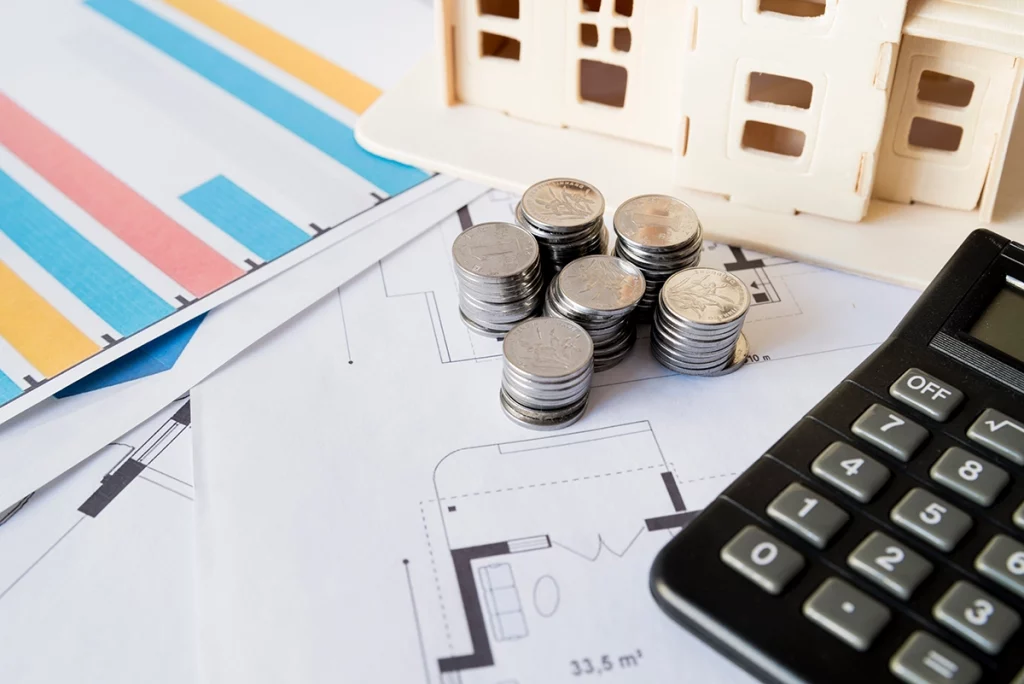Building a house is an exciting and significant investment. It can also be one of the most expensive undertakings that most people will experience in their lifetime! Because of this, it’s essential to approach the process with some caution and ensure that you stay on budget throughout the entire process.
Unfortunately, it’s not uncommon for people to exceed their budget when building a house due to unexpected costs – in fact, I would say it’s typical. In this article, I’ll share some tips on how to stay on budget during your home building journey.
1. The more decisions you make before signing a contract, the better the estimate will be.
I may be biased as an architect, but the more you can invest up front to ensure decisions are made ahead of time the better. One of the best ways to do this is having a complete set of construction documents. These are the drawings and specifications that outline exactly what you want built. If you haven’t heard it already, get everything in writing!
It may feel like money that you would rather spend elsewhere, but the fact is that if you don’t have exactly what you want in the drawings, it leaves room for interpretation by the contractor. This may lead to lesser quality construction, or finishes that you were hoping for. If your GC knows exactly what to price then there’s less chance for confusion. Also, if it’s all documented in the drawings, you can always point to it and say “this is what we agreed upon.”
2. Prioritize what is important. Know what your wants and needs are so you can adjust during construction if needed.
Life is all about compromise, and construction is no different. Before you even have any drawings put together, prioritize the things that are most important to you. Agree on a list ahead of time of what is most important and what are things that you’re willing to compromise on.
When you’re in the middle of construction and overwhelmed by the process, having these decisions written down will help you to stay focused on your goals. And if you do have to compromise on something, you’ll know ahead of time what you’re willing (or not willing) to give up.
3. Cost per square foot estimates are only a guide.
Although it’s a quick and easy metric for comparing different construction projects, cost per square foot estimates are not always accurate. If you’re reviewing an estimate, make sure you know what’s included.
Typically, an estimate based on cost per square foot doesn’t include acquisition (buying land) and usually don’t include a full basement. You can learn more about cost per square foot estimates here.
4. Hire a reputable general contractor with a proven track record.
Your general contractor will be your point of contact throughout the construction process, so you’ll want to ensure that you have a good relationship with this person and that you get along well. They will be the one who communicates with all the subcontractors who are the ones actually performing the work. Good communication leads to building things right the first time.
Even more important is ensuring that the GC has a portfolio of happy house owners who can attest to the results of their home building process. Ask for references from the GC. Contact the references and ask about if they came in on budget, on time, and if there were a lot of change orders.
5. Keep track your budget.
Staying on top of your finances is essential to staying on budget. Make sure to keep track of all expenses associated with the build, and update your budget regularly as the project progresses. By staying organized and monitoring your spending, you can avoid overspending and stay on track to meet your financial goals.
I’ve developed a budget spreadsheet to help you with this process.
6. Carry a contingency and ask your builder to carry a contingency if they aren’t already.
Carrying a contingency is the responsible thing to do. As an owner, you should have a contingency in your back pocket that no one knows about that you can always fall back on and pull from.
Likewise, your builder should have a construction contingency built into their estimate. This way if minor changes or alterations are made to the contract, there is some money available to cover those costs.
7. Stick to your budget and don’t add things as you go.
You have a budget for a reason, so stick to it! It may be tempting to add some slightly better light fixtures (i.e. more expensive) and upgrade the flooring, but all of these small changes can add up to a large cost and a bust in your budget.
That being said, it’s important to think about what things will be much more costly to upgrade or install later. In these cases, it may be worth spending more upfront to get what you want now rather than spend more later to replace a renovate. This is where prioritizing what’s important can help too.
8. Be sure to understand what costs are yours, and what is your general contractor’s responsibility.
There are a lot of people and moving pieces that come together to build a home. Don’t assume that anyone is doing anything unless it’s captured in writing and in the contract.
There are plenty of things that need to be done in order to build a home that are not in the general contractor’s scope of work (unless you agree to it first). Make sure to go through the contract and figure out what is their responsibility and what is yours.
9. Involve your GC in the design process.
No one knows building better than your general contractor. The sooner that they can be part of the process, the better acquainted with the project they will be, and the better their estimates will be. They will be able to weigh in on construction techniques and details, and work with your designer if needed to figure out any complications.
Hopefully these tips will help you to stay on budget during your home construction process. Let me know if there are other ways in the comments below!
Cover Image: Image by Freepik




